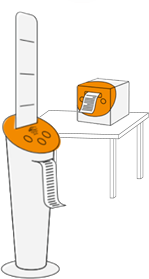I have seen you, shell-shocked city,
Shimmer in the parachute flares
The day's dust and exhaust
...
[+]
Dive into our latest issue, and discover stories for every audience. Our stories of Short fiction will transport you in an attic and invite you to revisit family memories, lead you to a wild therapy session with a vampire, or send you in space for a high-stakes mission. Enjoy our stories of creative nonfiction too, taking you from a hilarious village chicken chase to a spine-chilling adventure in a natural history museum. Let these stories sweep you away—one unforgettable read at a time.
Discover the new worksShort Édition offers a vast collection of short stories, poetry, and comics across many genres, from humor and love to sci-fi and magical realism.
Their works are created by thousands of paid writers worldwide and curated by an editorial team.
Short Édition delivers well-written content on eco-friendly scrolls for quick, mindful reading.
Since 2015 the Iconic Short Story Dispensers™ have offered reads to the public in libraries, schools, universities, hospitals, retail & transit spaces.

I have seen you, shell-shocked city,
Shimmer in the parachute flares
The day's dust and exhaust
...
[+]
40M+
stories offered
through Dispensers
650+
Dispensers installed
in 23 countries
2170
of published
writers
11K
published
works
201
writing
contests